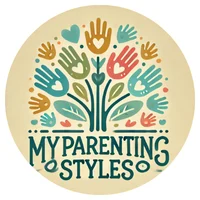Early Dating Red Flags: Spot Signs Before It’s Too Late
Early Dating Red Flags
Dating in the modern world is a complex emotional journey. What begins as an exciting adventure of connection and potential can quickly become a challenging navigation through subtle warning signs and potential emotional pitfalls. Understanding early dating red flags isn’t about becoming cynical or guarded—it’s about developing emotional intelligence and protecting your mental and emotional well-being.
The Critical Importance of Early Warning Signs
Relationships are more than just romantic encounters. They’re intricate emotional ecosystems where two individuals attempt to build a meaningful connection. The initial stages of dating are particularly crucial, serving as a revealing window into a potential partner’s true character, communication style, and emotional maturity.
Why Red Flags Matter More Than You Think
Most people mistakenly believe that red flags are dramatic, movie-like moments of conflict. In reality, they’re often subtle, nuanced signals that gradually emerge during interactions. These early warning signs are your psychological defense mechanism—a sophisticated internal alarm system designed to protect you from potential emotional harm.
Ignoring these signals can lead to:
- Prolonged emotional distress
- Decreased self-esteem
- Potential exposure to manipulative or toxic relationship dynamics
- Significant time and emotional investment in an incompatible partnership
Decoding the Complexity of Early Dating Dynamics
The Psychological Landscape of New Relationships
When we enter a new romantic connection, our brains are flooded with hormones and emotions. Dopamine creates a sense of excitement, while oxytocin promotes bonding. This biochemical cocktail can temporarily cloud our judgment, making it challenging to objectively assess potential warning signs.
Understanding this neurological process is crucial. It explains why intelligent, emotionally aware individuals can sometimes miss critical red flags during the initial stages of dating.
Comprehensive Breakdown of Early Dating Red Flags
1. Love Bombing: The Manipulation Masquerading as Affection

Love bombing represents one of the most sophisticated emotional manipulation techniques in modern dating. Unlike genuine romantic interest, this approach involves overwhelming a potential partner with excessive attention, grand gestures, and premature declarations of deep emotional connection.
Identifying Love Bombing: Subtle and Not-So-Subtle Signs
- Excessive Communication: Constant texting, calling, or messaging that feels more like bombardment than genuine connection
- Premature Intensity: Declaring profound love or discussing long-term commitment within weeks of meeting
- Lavish, Disproportionate Gestures: Expensive gifts or dramatic displays of affection that seem disconnected from your actual relationship stage
- Emotional Pressure: Subtle or overt attempts to accelerate relationship progression
The fundamental difference between love bombing and genuine affection lies in consistency and respect for personal boundaries. Authentic love grows organically, respecting individual pace and comfort levels.
2. Communication Dysfunction: Beyond Surface-Level Interactions
Effective communication is the cornerstone of any healthy relationship. Poor communication isn’t merely about awkward conversations—it’s a profound indicator of emotional intelligence, relationship potential, and personal maturity.
Detecting Communication Red Flags
Communication dysfunction manifests through various behaviors:
- Emotional Unavailability: Consistently avoiding deeper, meaningful conversations
- Defensive Mechanisms: Becoming aggressive or shutting down when challenged or asked direct questions
- Inconsistent Messaging: Saying one thing while demonstrating contradictory behaviors
- Stonewalling: Completely withdrawing during disagreements or emotional discussions
Expert relationship counselors emphasize that communication is a skill—one that requires continuous development, self-awareness, and genuine emotional vulnerability.
3. Controlling Behavior: The Subtle Art of Emotional Manipulation
Control in relationships rarely announces itself dramatically. Instead, it emerges through calculated, gradual actions designed to erode personal autonomy and independence.
Recognizing Control Beyond Obvious Manifestations
Controlling behaviors extend far beyond stereotypical scenarios. They include:
- Digital Surveillance: Excessive monitoring of social media, messages, or online interactions
- Social Isolation: Subtle attempts to distance you from friends and family
- Financial Manipulation: Creating dependency or using financial resources as a control mechanism
- Emotional Guilt-Tripping: Leveraging feelings of obligation or shame to influence decisions
- Passive-Aggressive Criticism: Undermining self-confidence through seemingly innocuous comments
4. Inconsistent Personal Boundaries
Healthy relationships require clear, mutually respected boundaries. Individuals who consistently challenge or disregard established boundaries signal significant potential for future relationship dysfunction.
Signs of Boundary Violations
- Repeatedly pushing personal limits
- Disregarding explicitly stated comfort zones
- Minimizing the importance of personal boundaries
- Creating situations that force uncomfortable compromises
5. Emotional Unpredictability and Volatility
Emotional stability is a critical component of mature relationships. Partners who demonstrate extreme mood swings or unpredictable emotional responses create an environment of constant uncertainty.
Red Flags of Emotional Volatility
- Dramatic emotional shifts without clear triggers
- Disproportionate reactions to minor situations
- Inability to regulate emotional responses
- Frequent, intense displays of anger or distress
Practical Strategies for Navigating Early Dating Dynamics
Developing Emotional Intelligence and Self-Protection
- Trust Your Intuition: Your subconscious mind processes subtle cues faster than conscious reasoning
- Maintain Personal Independence: Continue investing in personal growth and relationships outside romantic connections
- Communicate Clearly: Establish and maintain open, honest communication about expectations and boundaries
- Seek External Perspectives: Consult trusted friends or family who can offer objective insights
- Be Prepared to Walk Away: Recognize that no potential relationship is worth compromising your emotional well-being
The Healing Perspective: Growing Through Relationship Challenges
Encountering red flags isn’t a failure—it’s an opportunity for personal growth and increased self-awareness. Each challenging relationship experience offers valuable lessons about personal needs, boundaries, and emotional compatibility.
Transforming Challenges into Personal Development
- Reflect on patterns in your relationship history
- Invest in personal therapy or counseling
- Practice self-compassion
- Continuously refine your understanding of healthy relationship dynamics
Concluding Thoughts: Your Emotional Journey Matters
Dating should be an exciting journey of mutual discovery, personal growth, and genuine connection. By developing emotional intelligence, maintaining clear boundaries, and respecting your intrinsic worth, you create space for authentic, healthy love.
Remember: The right partner will consistently demonstrate respect, communicate openly, and contribute positively to your personal growth. Your emotional well-being isn’t negotiable—it’s fundamental.



